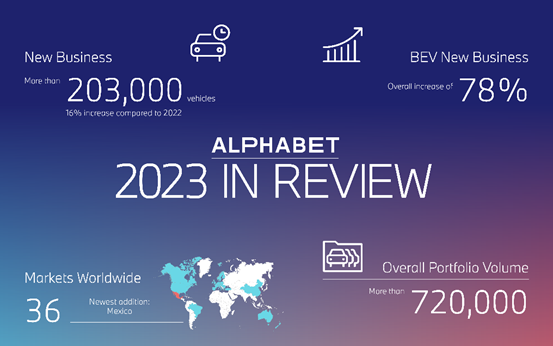
Andy McMorine, head of motor finance at Moneyway talks to Mike Cobb about the business and how it found a gap in the market to help the company fight off increased competition in the near-prime and subprime markets
Moneyway opened its door to new business in February 2009 and Motor Finance was on hand to cover the arrival of the non-prime lender at a time when the car finance market was experiencing one of its worst periods.
Moneyway operates as a part of retail bank Secure Trust and marked an entry into consumer finance for the overall parent Arbuthnot Banking Group, which was previously better known for traditional merchant banking.
Despite picking a difficult time to enter the market the Moneyway brand has gone from strength to strength. In 2012 the company acquired consumer finance company Everyday Loans and at the beginning of 2013 it bought V12 Retail Finance.
These acquisitions gave the business a strong presence in retail finance and the decision was taken in early 2013 to divide the business into two divisions.
How well do you really know your competitors?
Access the most comprehensive Company Profiles on the market, powered by GlobalData. Save hours of research. Gain competitive edge.

Thank you!
Your download email will arrive shortly
Not ready to buy yet? Download a free sample
We are confident about the unique quality of our Company Profiles. However, we want you to make the most beneficial decision for your business, so we offer a free sample that you can download by submitting the below form
By GlobalDataOne division specialises in retail products such as bicycles finance and the other is the motor finance division headed by Andy McMorine.
The new position, McMorine says, feels like "home from home" after his time at Santander Consumer Finance and a career in motor finance.
Hard work since January 2012 has propelled McMorine into the Motor Finance Power 50 and into a position where he now has seven account managers reporting into him, covering the 100 top dealers in the UK.
With the importance of the broker market in the UK, among the account managers is a specialised broker manager, David Cox-Greer, who deals with all the major brokers in motor finance.
In addition Moneyway has two key account managers, one in the north, another in the south who deal with the ‘scaleable’ relationships, and four more account managers in the business deal directly with the dealer networks regionally.
All this has helped Moneyway develop their business rapidly, while ensuring comprehensive coverage of the dealer groups in the UK.
"In 2013 we saw strong growth year-on-year versus 2012, and we expect to mirror that in 2014," says McMorine, "I guess from the second half of 2013 we started to see a lot of changes around the finance marketplace and the supplier marketplace as consumer confidence increased. We were coming out of recession; the whole marketplace had economic stability and strong growth forecasts going forward. At that time vehicle sales were strong, particularly with subvented new cars in the UK, as the rest of Europe seemed to be suffering."
But the strong markets had their own problems. McMorine continues: "In terms of new car sales the UK was really strong, so naturally the manufacturers ploughed all their money into the UK market, and put a lot of subvented stuff into the UK, which was great as it put all the funds into the UK. And, of course, interest rates remained low, so it was a positive time and there were positive projections going forwards.
"But because of that we recognised that competition and margins in the finance sector were coming under pressure as more people started to branch out.
"More of the prime suppliers and the near-prime suppliers started to refocus their portfolios, and dip their toes into the lower end of the scale, in terms of what their finance customers look like, so they started to experiment with rate-for-risk products."
New product launch
With the competition from traditionally prime lenders becoming more evident, McMorine is pushing his team at Moneyway to innovate and move deeper into the subprime market with a new product, which launches in mid February.
Being a bank, however, meant Moneyway had to remain prudent in its lending policy, so the new product had not just to tap deeper into the subprime market, but explore it in ways that mitigated the risk of lending to supposedly subprime customers.
Until the launch of its new product Moneyway organised its lending policies into five tiers, with tier one, called premier, being aimed at the near-prime market, with tiers progressing down from there to sub-prime markets with Purple then Yellow tiers.
The difficulty for Moneyway is how to get deeper into the subprime market without taking too high a risk.
The solution is to create another tier rather than turn the Yellow tier up to 11. This tier has been dubbed Red and sits below Yellow in the line up.
"Red has been in pilot since the beginning of Q3 2013," says McMorine "and what the red tier does really is look at individuals who have little or no recent voter roll data on their credit searches, which would usually have been customers that have been declined by pretty much everyone."
McMorine explains that the requirement for Red is for applicants to be able to supply two proofs of address and also to have some outstanding credit that is not held at the current address.
As an example McMorine cites householders who may have just moved home and haven’t yet changed their voter registration while still paying the usual credit card and mortgage payments that would normally make them good credit risks.
"The red tier is a mechanism to underwrite and approve what I would call non-traceable voters roll payers," says McMorine.
So as part of a bank, the solution to the inherent risk of moving deeper into the subprime market for Moneyway is not to focus on those who have struggled to pay, but to look at a market of people who have a good record of payments but have not as long a provable residential status as other applicants.
And the principle has found success in the pilot project Moneyway conducted. Using scaleable partners, the company held a six-month trail before deciding on the launch date. "And what that did was assist our piloted partners to sell successfully more vehicles to people who they probably wouldn’t have been able to sell to beforehand, because the customer wouldn’t have been accepted on finance," says McMorine.
Fantastic feedback
The results have been impressive "We had some fantastic feedback from all of those partners, We’ve assisted them in selling more and more cars and generated reciprocal business and growth," McMorine continues.
"I think it’s an innovative product that helps us write more business with our key partners, but more importantly it helps our key partners sell more cars to more people and that’s a good thing because I think without this product many would struggle to get credit. So what that does for our partners is probably gives them a customer for life."
So Moneyway has found a product that is innovative and has, so far, proved successful in trials. 2014, however is a year that heralds a major change in consumer finance regulation. And with a requirement to prove affordability there could be a potential for pitfalls in looking deeper into subprime, especially in an area where the lack of paperwork in transactions has already been cited as constituting potential warning flag to the Financial Conduct Authority.
McMorine however feels that this won’t be an issue. He says: "Obviously from a compliance perspective, legally and regulatory wise, we were more than covered before the launch of the product.
"And also with the Consumer Credit Directive processes that our dealer partners follow around transacting the customer from a regulatory perspective there are no concerns whatsoever."
"And as a bank-owned business we have to make sure all the ‘i’s are dotted and all the ‘t’s crossed, even before we write the first deal. So we have absolute comfort that won’t happen."
Moneyway and McMorine think they have therefore found a way both to beat the competition that’s crowding the near and subprime space and also give their dealer partners a way to access a new and potentially loyal client base.
The hope is therefore that the Red tier will help Moneyway move into 2014 without any of the risks that the prime lenders will take as they move down the scale, and help them to grow their business.







